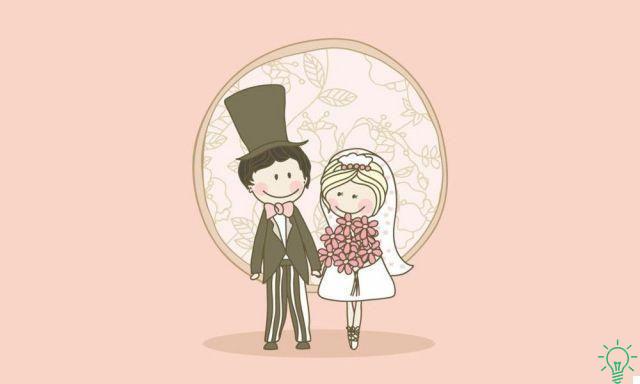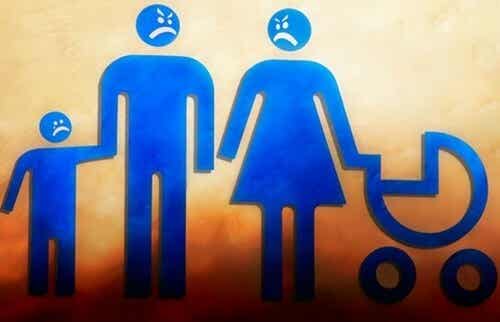There are relationships in which anxiety is the predominant element, because one or both partners feel a kind of deep distrust of the other. Sometimes this is due to the so-called anxious attachment that some people develop towards their partner; others because the partner is elusive or indolent.

Last update: 18 September, 2022
Anxious attachment outlines a bond in which restlessness, possessiveness and insecurity predominate. Typically, such a relationship is established due to unresolved problems with one or both partners. Other times, however, the anxious behavior is triggered or fueled by one of the two members.
Although there is a basic insecurity, the person experiencing it is not always the one who nurtures or activates this type of relationship. In other words, sometimes the relationship becomes a cause of anxiety due to the attitude of the partner.
It is not easy to distinguish a case of anxious attachment from one in which anxiety is triggered by a partner is elusive. For this reason, many people fail to answer the question: "Is it my insecurity that leads me to feel anxious about my partner or is it my partner who behaves in a way that would make anyone feel anxious?"
“Anxiety cannot be avoided, but it can be reduced. The problem of managing anxiety consists in reducing it to normal levels and using normal anxiety as a stimulus to increase one's perception, alertness and will to live. "
-Rollo May-
The anxious attachment in the couple
Anxious attachment, also called insecure-ambivalent attachment, defines a bond in which there is a great desire for intimacy with the partner, but at the same time there is a deep fear of losing it. This feeling leads to an apprehensive experience of any manifestation, however minimal, of estrangement or rejection.
The anxious person, in fact, thus interprets many behaviors that in reality do not indicate withdrawal or rejection. Living every situation in this way, a great distrust of the partner and everything that concerns him prevails. Often there is a disproportionate reaction to behaviors that are completely normal.
In these cases, the partner's reaction is decisive. Ideally, you should adopt a sympathetic attitude and understand that your partner's anxiety stems from deep insecurity and, sometimes, unresolved psychological trauma.
A person suffering from anxious attachment needs warmth, understanding and security. If you learn to trust your partner, your anxiety will most likely lessen.
The elusive partner
Those with an anxious attachment do not need a person to take charge of their insecurities and fears, much less have to relate to those who increase them. An elusive partner, in fact, feeds the anxiety of the person with whom he is with and it strengthens their attachment, which is only harmful.
Many times she does this without realizing it, but it can also turn the relationship into a power play towards the partner. An elusive partner is one who, in the face of conflict, runs away or remains silent.
And so too are those who try to solve problems hastily without delving into what is happening or those who intellectualize everything by preventing emotions from surfacing. Even those who get irritated or feel uncomfortable when their partner cries or is in pain.
Another elusive personality trait is the lack of emotionality. For those who are anxious, it is harmful to have as a partner someone who has difficulty in having a relationship, who hates commitments or who does not want to be connected.
There are also those who ridicule or minimize their partner's emotions; this attitude increases her insecurities.
Is it me or is it he / she?
Many times it is difficult to understand if the couple is made up of a member suffering from anxious attachment chronic, with all the consequences of the case, or if there is a normal attachment that becomes anxious because the partner says and does things that increase the unresolved insecurities of the partner.
To answer the question of whether it is anxious attachment or avoidant behavior that prevails in a relationship, it is important to identify fears that are certain:
- Fear that the partner does not want to commit.
- Fear that a conflict cannot be resolved because the other person refuses to deal with it.
- Fear of not being heard or understood by the partner.
- Fear of being vulnerable.
If any of these fears are present, probably the partner is elusive. Other fears, especially if intense, indicate instead the predominance of an anxious attachment rather than an elusive partner. We refer to the fear of losing the other person, that our partner may fall in love with someone else, that he may stop loving us or the fear of being alone.


























